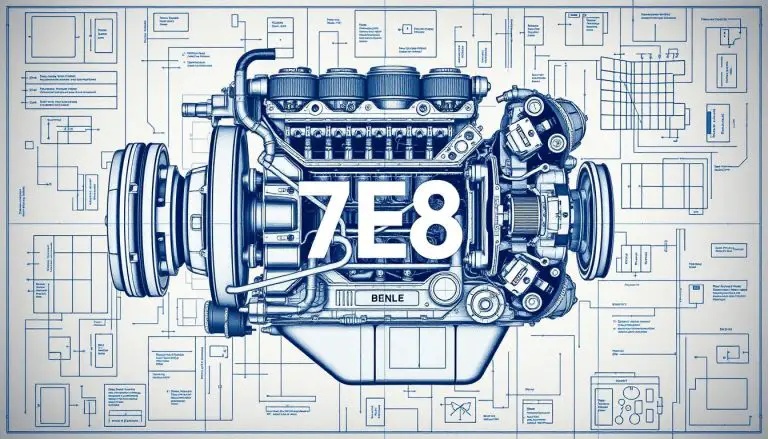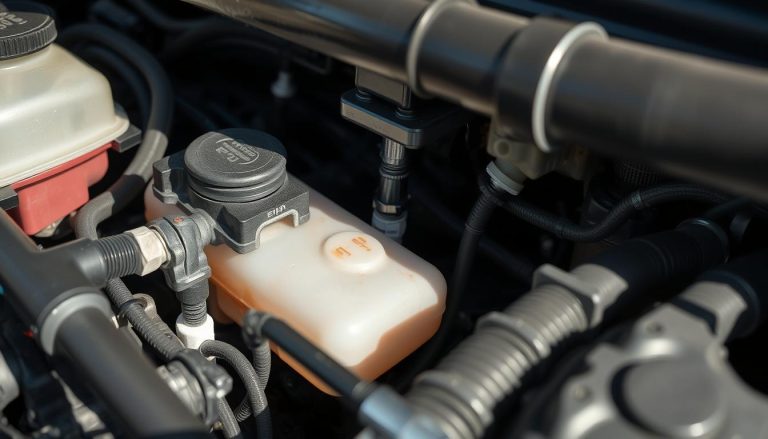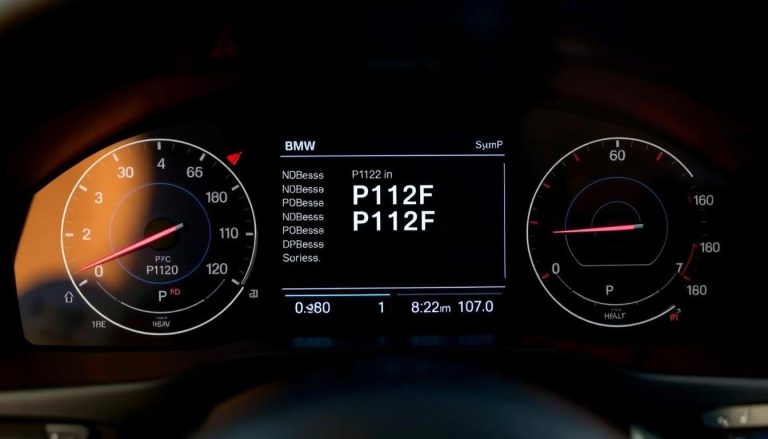The P0302 code is a common issue that drivers encounter, often leading to confusion and frustration. Misfires can turn a smooth ride into a bumpy ordeal. Understanding what this code means is crucial for maintaining your vehicle’s health, preventing further damage, and ensuring you remain safe on the road.
In this blog post, we’ll dig deep into the nitty-gritty of the P0302 code—what it indicates about your engine performance and how to tackle it head-on.
What does the P0302 code mean?
The P0302 code is a diagnostic trouble code (DTC) that signifies a misfire in cylinder number two of your engine. When the Engine Control Module (ECM) detects an imbalance in engine performance due to a misfire, it triggers this specific code.
A misfire occurs when the air-fuel mixture in the cylinder fails to ignite or combust properly. This can lead to decreased engine efficiency and increased emissions.
Cylinder two refers specifically to the second chamber within your engine’s firing order, which means that problems are localized rather than affecting all cylinders equally.
Understanding this code is crucial because ignoring it may lead to more serious issues down the line, such as damage to other components or even complete engine failure if not addressed promptly.
What are the common symptoms of a P0302 code?
When a P0302 code triggers, you might notice your vehicle behaving unusually:
- One of the first signs is engine roughness during idle or acceleration. This can feel like a noticeable shake or vibration.
- A decrease in fuel efficiency. If you’re filling up more often without changing your driving habits, it could be linked to this misfire issue.
- Diminished engine performance
- Flashing or constant MIL (malfunction indicator lamp) illumination
- Unusual smells from the exhaust can arise if unburned fuel enters the catalytic converter due to improper combustion.
What are the common causes of a P0302 code?
The P0302 code can arise from several underlying issues :
- A faulty spark plug. Worn or damaged plugs may fail to ignite the air-fuel mixture efficiently.
- Ignition coils also play a significant role. A malfunctioning coil can lead to misfires, affecting performance in that specific cylinder.
- Fuel delivery problems are another area of concern. If the fuel injector for cylinder 2 becomes clogged or fails, it can disrupt the correct fuel flow necessary for optimal combustion.
- Vacuum leaks around the intake manifold might introduce extra air into the system.
- EGR valve stuck in the wide open position
- Clogged EGR ports
What are the diagnostic steps for a P0302 code?
Diagnosing a P0302 code starts with connecting an OBD-II scanner to the vehicle. This tool reads the trouble codes stored in your car’s computer system.
Once you’ve identified the P0302 code, it’s essential to check for any other related codes that may provide additional context.
Next, inspect spark plugs and ignition coils specific to cylinder two. Worn or damaged components can easily lead to misfires.
Afterward, examine fuel injectors for proper operation. A clogged injector can disrupt fuel flow and cause misfiring issues.
It’s also wise to assess vacuum lines and intake manifold gaskets for leaks. Air leaks can create uneven pressure leading to performance problems.
Conduct a compression test on all cylinders. This helps rule out mechanical issues like worn piston rings or valve problems that could contribute to the misfire.
How serious Is the P0302 Code? Can I continue driving with the P0302 code?
The P0302 code indicates a misfire in cylinder 2, which can significantly impact your vehicle’s performance. While it might seem tempting to drive with this code present, it’s essential to understand the potential risks involved.
Continuing to operate your vehicle under these conditions may lead to further engine damage. A persistent misfire can cause excessive wear on components like spark plugs and fuel injectors. Additionally, unburned fuel could harm the catalytic converter over time.
If you notice rough idling or decreased acceleration while driving, it’s crucial to address these issues promptly. Ignoring the problem not only compromises your car’s efficiency but also poses safety concerns on the road. Always prioritize diagnosing and fixing any underlying issues related to a P0302 code for optimal performance and reliability.
What are the repair solutions for a P0302 – Cylinder 2 Misfire Detected?
Repairing a P0302 code often begins with replacing the spark plugs. Worn or faulty plugs can lead to misfires, especially in cylinder two.
Next on the list is checking the ignition coil. A failed coil could prevent adequate spark from reaching the cylinder, which directly impacts performance.
Fuel delivery issues might also be culprits. Inspecting fuel injectors for clogs or malfunctions ensures that cylinder two receives its fair share of fuel.
Another area to examine is vacuum leaks around intake manifolds and gaskets. Even minor leaks can disrupt air-fuel mixture ratios, leading to misfiring.
If all else fails, a deeper investigation into engine compression may be necessary. Low compression in that particular cylinder indicates more serious concerns like valve damage or head gasket failures.
Address these repairs promptly to restore your vehicle’s efficiency and reliability without unnecessary delays.
How long and How much does it cost to diagnose and repair a P0302 code?
Diagnosing a P0302 code can typically take one to two hours at your local repair shop. Labor rates vary widely, but expect to pay between $75 and $150 per hour. This means the initial diagnostic cost could range from $75 to $300.
Once diagnosed, the repair costs depend on the root cause of the misfire in cylinder 2. If it’s something simple like replacing spark plugs or ignition coils, you might be looking at an additional $100 to $400 for parts and labor.
More complex issues involving fuel injectors or internal engine problems can skyrocket costs, potentially reaching upwards of $1,000. Always ask for a detailed estimate before proceeding with repairs so you know what you’re getting into financially.
How can I avoid a P0302 code?
Maintaining your vehicle’s health is key to avoiding the P0302 code. Regular maintenance checks can help catch issues early. This includes routine oil changes, spark plug replacements, and air filter inspections.
Using high-quality fuel also plays a significant role. Low-grade fuels can lead to poor combustion and potential misfires. Always opt for fuel that meets or exceeds manufacturer specifications.
Additionally, keeping the ignition system in top shape is crucial. Check coils, wires, and connectors for wear or damage regularly. Even minor issues can escalate into bigger problems if left unchecked.
Monitoring engine performance is essential too. Pay attention to any unusual sounds or vibrations while driving—these could be early indicators of trouble brewing under the hood.
Consider scheduling professional diagnostics periodically. Early detection of potential faults may save you time and money in the long run without ever triggering that pesky P0302 code.
What happens if you ignore a P0302 code?
Ignoring a P0302 code can lead to several complications. The misfire in cylinder 2 may seem minor at first, but it often worsens over time. A single misfire can escalate into more severe engine issues if left unchecked.
You might notice reduced fuel efficiency as the engine struggles to operate correctly. Increased emissions could also occur, which is not only bad for the environment but may also cause you to fail an emissions test.
Long-term neglect of this code risks damaging critical components like spark plugs and catalytic converters. Repair costs will likely rise significantly when multiple parts need replacement instead of just addressing the initial problem.
Additionally, driving with a misfiring cylinder affects overall vehicle performance. You could experience rough idling or stalling, making your car less reliable on the road. Safety should always be a top priority; ignoring warning signs compromises that safety every day you drive your vehicle without fixing it.
Is the P0302 code specific to certain car makes or models?
The P0302 code is not limited to specific car makes or models. It’s a generic OBD-II trouble code, which means it can appear in various vehicles equipped with onboard diagnostics.
Different manufacturers may have unique causes for this misfire issue. Yet, the underlying problem often relates to common components like ignition systems, fuel delivery mechanisms, and engine sensors.
While the symptoms might manifest similarly across different brands, diagnostic steps could vary slightly based on manufacturer guidelines. Some car makers provide distinct troubleshooting protocols that help pinpoint issues more accurately.
For instance, a luxury vehicle brand may incorporate advanced technology that affects how misfires are detected compared to standard models. However, regardless of make or model, addressing the P0302 code promptly is essential for maintaining vehicle performance and safety.
What other codes may be related to P0302?
When dealing with the P0302 code, it’s essential to be aware of related diagnostic trouble codes (DTCs) that may arise. Often, a misfire in one cylinder can indicate issues affecting others or even broader engine performance problems.
Commonly associated codes include P0301 through P0308, which represent misfires detected in cylinders 1 through 8 respectively. If your vehicle is equipped with a V6 or V8 engine, you might see multiple misfire codes at once. This could suggest widespread ignition system problems or fuel delivery issues.
You may also encounter codes like P0171 and P0174, indicating lean fuel mixture conditions that can exacerbate misfiring symptoms. Additionally, if there are compression-related issues leading to the misfire—like those indicated by code P0300 (random/multiple cylinder misfires)—these should be addressed promptly.
Understanding these related codes helps provide a clearer picture of what’s happening with your vehicle’s engine. Addressing them not only resolves specific symptoms but ensures overall health and efficiency for your car’s operation moving forward.


